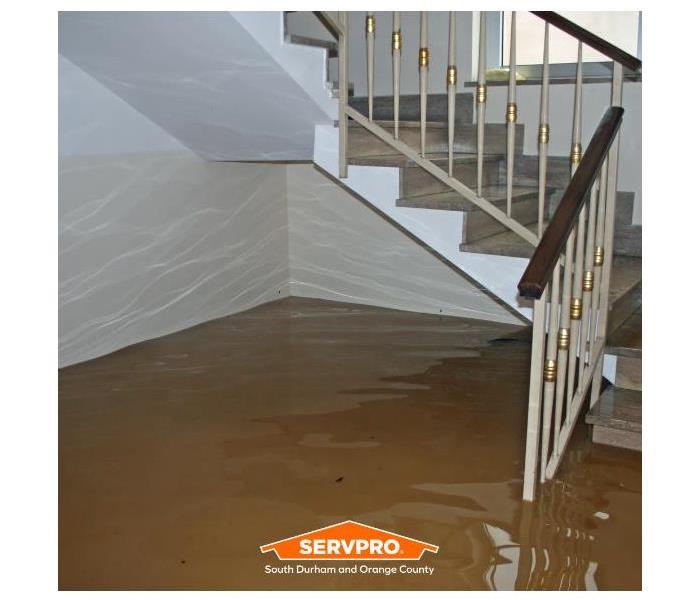Flood Facts
5/29/2024 (Permalink)
North Carolina weather is unpredictable, often bringing flash flood alerts during any season. These severe weather events can stem from major thunderstorms, tornadoes, or hurricanes. When flood or ground water affects your home, it's crucial to understand how this differs dramatically from damage caused by a ruptured pipe or water heater. Flood or ground water is classified as a Category 3 water loss, indicating that it is grossly contaminated. As a solvent, water picks up anything soluble it encounters, which means flood water can carry a host of dangerous contaminants. Due to these hazards, the water remediation standard known as the IICRC mandates the removal and disposal of all porous materials impacted by Category 3 water intrusions. This typically includes drywall, insulation, carpets, padding, affected furniture, and other contents. The goal is to ensure that all contaminants are thoroughly eliminated, preventing any health risks or further damage to your property. In contrast, clean water sources, such as those from a pipe or water heater rupture, are less hazardous if addressed promptly. If clean water is caught within a few hours, it can often be dried out properly without the need for extensive removal and disposal of structural items or contents. This is because clean water does not carry the same level of contaminants as flood or ground water. Stay informed and prepared for North Carolina's unpredictable weather. Knowing how to handle different types of water damage can make all the difference in protecting your home and loved ones.






 24/7 Emergency Service
24/7 Emergency Service
